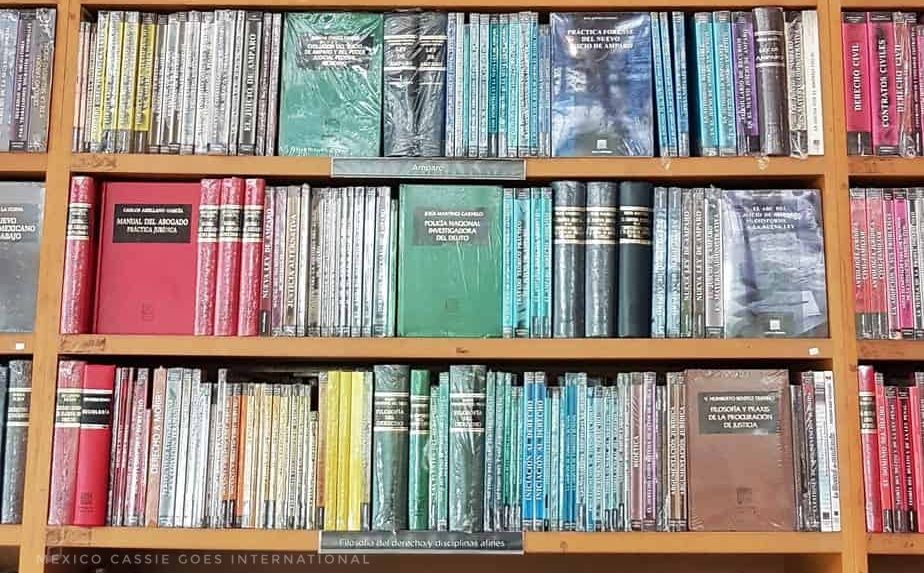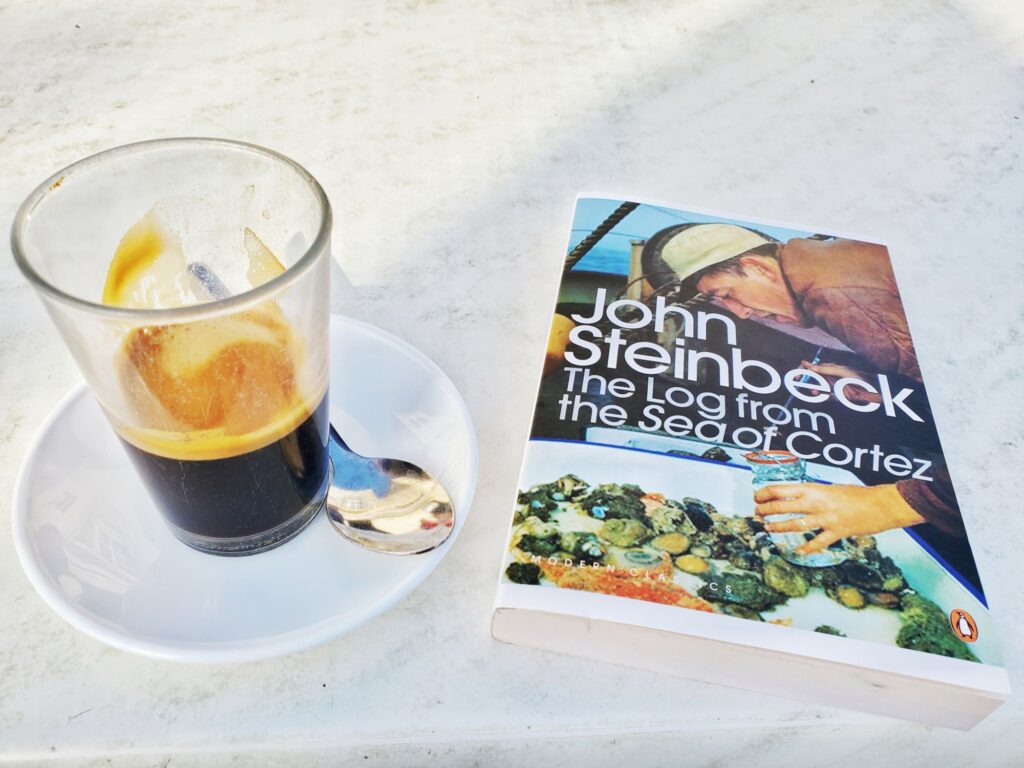Don’t Miss Out: the Literature of Mexico

What do we mean by “reading the literature of Mexico”? We mean reading books by Mexican novelists. We mean reading books that help us to learn about Mexican history, modern social issues and more.
When I moved to Mexico I wanted to better understand where I was living and I figured that there were few better ways to learn about Mexican history, the Mexican revolution and the impacts of colonial Mexico on modern day Mexico than Mexican writers. I figured novels would be more fun than dry text books and personally I’ve found I really enjoy the Mexican writing style.
Where else can you learn about Mexican culture?
⭐️ Mexico is FULL of incredible museums so if you like to get your history from museums, you won’t be disappointed.
⭐️ If you’re interested in pre-hispanic history (of course you are, we all are, right?) then pretty much anywhere you visit in Mexico you’ll be able to visit phenomenal ruins.
⭐️ Of course, we live in the 21st century so Netflix is another fabulous medium for anyone wanting to learn more about contemporary culture in Mexico. I have found numerous fabulous Mexican series on Netflix that have really helped me to understand current affairs, issues facing Mexico and Mexicans in the present day, or at least, know what questions to ask my Mexican friends.
📺 Try: Club de Cuervos, Casa de las Flores, Todo va a estar bien, or Desenfrenadas, to begin with.
There are affiliate links in this article. If you click and make a purchase I could make a small sum at zero cost to you. Thank you!
Note: This article doesn’t give a full rundown of Mexican literary works. I’m just an avid reader who loves Mexico and who hopes to persuade you to read both classic and contemporary Mexican literature on your journey around Mexico, whether you plan to live here or are just visiting. 😉
📍 If you enjoy reading and think I have good taste in books, then you might enjoy the recommendations I make over on the “What’s Cassie reading?” page of my blog.
The Literature of Mexico
📚 If you are happy reading in Spanish then there will be more open to you but there is a decent amount translated for those who are more comfortable reading English translation of the originals. I read everything mentioned here in English unless otherwise mentioned.
Literature of Mexico
The Labyrinth of Solitude (El Laberinto de la Soledad)
by Octavio Paz
📌 Paz is considered to be one of the most important writers of Latin American literature of the twentieth century. He received the Nobel Prize for Literature in 1990 and died in Mexico City in 1998.
For anyone wishing to read the literature of Mexico to understand Mexico, the general expectation is that you begin with Octavio Paz’s ‘The Labyrinth of Solitude’. First published at the end of the first half of the 20th century, this is still widely held to be the seminal work for anyone wishing to understand modern Mexico and Mexicans.
By reading Paz, you join the rank of countless knowledge seekers of Mexico and Mexican culture across the world. It is not an easy read but you’ll learn a lot about the relationship between indigenous Mexicans, the Spanish Conquistadors and the Mexicans of today. In this collection of essays reflecting on political history, Paz asks if solitude can be a national characteristic, and if so whether it is the key to understanding Mexico and its history.
Paz explains the Mexican artistic community of the late nineteenth and early twentieth centuries thus:
“the popular arts emerged again, after centuries of having been ignored the old songs were sung once more in schools and concert halls; the regional dances…were danced for a wider audience. Contemporary Mexican painting was born. Some of our writers turned their eyes to the colonial past, and others used Indian theme; but the most courageous faced up to the present, and created the novel of the Revolution. After the lies and pretences of the dictatorship, Mexico suddenly discovered herself, with astonished and loving eyes: ‘we are the prodigal sons of a homeland which we cannot even define but which we are beginning at last to observe. She is Castilian and Moorish, with Aztec markings”.
Literature of Mexico
The Pearl
by John Steinbeck

I love Steinbeck. He’s one of my favourite authors and this didn’t disappoint. I know he isn’t Mexican but this book came up time and again in lists of books set in Mexico and I figured that the quality of his writing is so good that it would be worth reading. The language just flowed so beautifully and truly portrayed a slow, hot Mexican village life and the tragedy of Kino, a poor pearl diver.
I read The Pearl immediately after I read Paz and what I found was a fictional version of The Labyrinth of Solitude. It was as if Steinbeck read Paz and thought, ‘I can make this more accessible, I can make people feel what Paz is saying’. I’ll never forget this book.
I also read the Sea of Cortez, a Steinbeck where recounts an expedition he and a friend took in the Gulf of California.
Mornings in Mexico
by D.H. Lawrence

Languid. It’s the best word to describe this collection of essays written by Lawrence about Mexico. Discover how the famous writer saw indigenous village life in the 1920s and be relieved that the colonialist attitude you expected isn’t quite as strong as it might have been. Lawrence and his wife really got to know Mexico during their stay there.
Literature of Mexico
Visit to Don Octavio
by Sybille Bedford
At one stage this was considered to be one of the best travel books ever written. Rather than return home after the end of the Second World War, Sybille Bedford headed off to Mexico for an adventure. I found travelling around Mexico with Sybille to be an eye-opening experience, allowing me a view of both Mexican and expat life of the post-war period.
Literature of Mexico
The Hummingbird’s Daughter
by Luis Alberto Urrea
This may be one of my most favourite books ever. While reading this, it felt as if Paz’s work had come to life through this novel about relationships between the different ethnic groups in Mexico in the late nineteenth century at the dawn of the civil war.
The main character, a young woman named Teresita, is a real historical figure, and is related to the author. The novel focuses on the sudden elevation to sainthood of this girl in late 19th-century Mexico.
Literature of Mexico
House of Broken Angels
by Luis Alberto Urrea

The House Of Broken Angels’ is a beautiful read that focuses on the life of a Mexican family living in the USA using a funeral and a birthday party as the setting for familial chaos, love and loss; all common themes in his work.
Literature of Mexico
Into the Beautiful North: A Novel
by Luis Alberto Urrea
I was hooked. I don’t normally enjoy reading three novels by the same author in quick succession but Urrea had me completely obsessed. It’s not surprising to know that he is an award-winning author considered to be one of the finest Latino authors. Personally, I’d remove the ‘Latino’ and just say he’s one of the finest living authors there is.
This novel focuses on a young girl and her friends who venture across the border into the USA, not to make a new life for themselves but to persuade Mexicans living there to come home and help rebuild Mexico.
Literature of Mexico
Faces in the Crowd
By Valeria Luiselli
Widely feted as one of the female Mexican authors to watch, I was naturally drawn to Luiselli.
I loved the way two (becoming three?) stories intertwined: that of the narrator, a woman trapped in an unfulfilling marriage and the story of her youth and her obsession with an obscure poet. As the book progresses the stories grow closer and closer.
I wouldn’t say this was either an easy read or that it was my favourite novel ever but it was an interesting look at modern Mexican literature. You definitely need to concentrate to read this novel. The words might be accessible but the constant dancing between the two, or was it three, strands of tale keeps the reader on her toes.
Note that Luiselli is also the author of the famous “The Story of my Teeth”
Literature of Mexico
Like Water For Chocolate
by Laura Esquivel

I didn’t love this book when I read it many years ago, but I’ve never forgotten it. Its plot and characters have stayed with me, working their way into both my psyche and my understanding of Mexico. Whenever I cook something new or something Mexican I think lovingly of a Mexican cook adding her emotions to her creation, a spoonful of love here, a drop of tears there. This is the mark of a great storyteller.
Esquivel, like Paz, helps her reader to feel just a little closer to Mexico. It just goes to show what a delicate balance crafting a story can be.
Literature of Mexico
I’ll Sell You a Dog
By Juan Pablo Villalobos

This feels very much that it’s written in a similar, no-nonsense style as used by Luiselli. There are no frills, the language feels utilitarian but Camus-esq in its clear and distanced narration by the protagonist. This is one of my favourite Mexican books.
You’ll love the wry humour and the satirical look at modern Mexican culture that shines through in this novel as you meet the famous taco guy, Teo. He lives in a building for retired people where he attempts to deal with his boredom by harassing and flirting with others.
Literature of Mexico
The Body Where I Was Born
by Guadalupe Nettel
The narrator of this truly beautiful novel speaks to us from the couch of her psychiatrist, recounting her weird childhood. She was born with an abnormality in one eye, which her mother was desperate to fix. Nettel uses direct language to spare us nothing of the awkwardness of not only growing up, but growing up on the outside. I couldn’t put this book down.
While this novel isn’t entirely set in Mexico, and doesn’t make much of its Mexican-ness, it definitely helped me open myself to another section of Mexican society. In this novel, you’ll read about typical middle-class families who are as screwed up as any other family around the world.
Under the Volcano: A Novel
by Malcolm Lowry

I’ve tried, multiple times to read this and failed every single time. If anyone has managed to read and enjoy this, please do let me know. I know many consider it to be a literary masterpiece but I just couldn’t do it. The novel tells the story of an alcoholic British civil servant on Day of the Dead in 1939 as he copes with his day.
Literature of Mexico
Other Mexican authors to read
Carlos Fuentes Macías – His primary works include, The Old Gringo, Christopher Unborn and The Death of Artemio Cruz. He was considered one of the most admired writers in the Spanish speking world and had a huge influence on the Latin American literature boom of the 1960s and 70s.
Rosario Castallanos Figueroa – A Mexican poet and writer Castallanos is considered to be one of the most important Mexican literary voices of the 20th century. She wrote about issues of culture and gender oppression and her work influenced Mexican feminist theory. Although she died young, she left a legacy for female Mexican writers that continues to this day.
Jorge Volpi Escalante – Best known for his novel In Search of Klingsor, Volpi came to attention with his participation in the “Crack Manifesto” where he and other young writers proclaimed their protest a the state of Mexican literature. Volpi, unlike many Latin American writers, does not tend towards magical realism but instead focuses on academic topics and often doesn’t even consider Latin American settings.
Elena Garro – Described as the initiator of the magical realism movement, Garro wrote short stories, novels and worked as a journalist. Garro’s fiction explored political and social causes related to life in Mexico. According to essays abotu Garro, her citizenship status and views on Indian rights aroused controversy in Mexico. She was also married to Octavio Paz for 20 years.
Final notes
📌 I’m going to admit to having owned a copy of Juan Rulfo’s Pedro Paramo on my shelf for many years and have never read it. Yes, I have it in Spanish. I feel as if I understand the words but just can’t get anywhere with the obvious layers to the text. They’re obscured to me by my lack of ability in Spanish – words are fine, depth evades me.
📌 Don’t forget that I’ve also written two books about Mexico – obviously neither of them are great works of literature and they won’t teach you about Mexico’s great history but they will come in extremely handy if you’re thinking of moving to Mexico or if you’re coming on a vacation to Yucatán.



15 Comments
Steve Vender · 04/05/2018 at 3:41 pm
Wow! You and your family are unique travelers. People travel for all sorts of reasons, but I love your approach, of which an immense curiosity and a desire to learn about other people and their culture through their history. Most people would consider this approach far too burdensome. That’s because most people travel with cultural safety nets, such as seeking out people who speak their language instead of the language of the country in which they’re traveling, or not attempting a total immersion in a country and a culture not their own. Psychological, this is understandable, but it limits your rewards. You seem to be looking to deeper into different countries and cultures, not to remain around the edge where there are safe, psychological guardrails to prevent you from venturing into the unknown. This was really an enjoyable read as well as expanding my own reading list. Two suggestions for you: “One Life,” by David Lida, a book that came and went without much fanfare because it would be too dark for most readers, yet it is the best work of fiction that takes you into the world of undocumented Mexican immigrants in the Southern United States. The second book is John Ross’ classic, “El Monstruro: Dread and Redemption in Mexico City.” I’ll look forward to your next post card.
Cassie · 04/05/2018 at 10:48 am
Thanks, Steve. What a lovely thing to say. Really appreciated. And I’ll certainly add those books to my list. My kindle is in front of my right now…
Ra · 05/05/2018 at 2:22 am
Okay… Now I’m with the program. Excellent list; thanks for it. Also, though I’ve thus far avoided e-readers, guess I’ll consider one. Did you research much prior to selecting the Kindle? What decided you? Will be coming back to Mx soon, hopefully for the duration…Need to read.
Cassie · 04/05/2018 at 9:28 pm
Haha! I did do some research and I think I have a paperwhite. I have a link to the kindle I have in the article if it helps. I had an older kindle before and liked it so when it eventually died I got a new one.
Jen at The Places We Live · 05/05/2018 at 5:05 am
Excellent post! My husband and I recently got hired to do some literary tourism writing. I never knew it could be so much fun. You are right that it is such an excellent way to immerse yourself in a culture. I’ve been really happy with how much these books I am reading is opening my eyes to things I wouldn’t have noticed in my travels before.
Cassie · 05/05/2018 at 7:03 am
Um, literary tourism writing? That sounds incredible. How did you find that work?
Helen · 05/05/2018 at 2:15 pm
I do the same! I love reading books about the countries I am visiting!
Cassie · 05/05/2018 at 4:56 pm
It’s such a lovely ‘extra’ to travelling, isn’t it? News ways of seeing the world always excite me.
Jennifer Schlueter · 05/05/2018 at 9:18 pm
What a lovely idea to write about! Different than usual blog posts and refreshing, THANK YOU. Added some books to my list 🙂
Cassie · 05/05/2018 at 9:26 pm
Thanks so much. It means so much to get positive feedback after doing something a little different.
Jill · 06/05/2018 at 2:37 am
Thanks, Cassie! I hadn’t even heard of most of those books! I’ll have to check them out. Two of my favorites that have really stuck with me are Caramelo by Sandra Cisneros and Leaving Tabasco by Carmen Boullosa.
Cassie · 05/05/2018 at 9:49 pm
Thanks . I’ll add those two to my list.
Emese · 18/01/2019 at 10:09 pm
Love this post! I also like to read ( in the original language if I’m able) books about the countries I visit. When I travel to Mexico, I sometimes carry a compilation of Mayan Folktales… love your selection of books here, I read some, but still found a few on your list I need to buy (ok, or maybe checkout from the library, if I must) – I can’t read ebooks yet, though in theory I appreciate them. I need the feel of the physical book in my hands… I’m a bit old-fashioned (and old). Anyway, you have a great list here; thanks for bringing a few new ones to my attention ?
Patrick · 09/11/2021 at 7:04 pm
Thanks for the book list. (I just “discovered” you today.) While I’ve maintained some level of proficiency in Spanish for a number of years–having lived and traveled in Mexico beginning in (gulp) 1968–I have yet to read a fiction book in Spanish. I’m about to to rectify that, and have just obtained a copy of “Aura” by Carlos Fuentes; it is an unintimidating 61 page novella. I wish I was reading it in Mérida, my favorite Mexican city!
A thought on one’s second language: For me, Spanish was and will always be my second language. Although I’ve acquired other languages (French, Portuguese Italian, and bits of a few others, and I read French novels) Spanish has always remained my number one, automatic, fallback language when English doesn’t do the trick. Spanish seems to be as firmly entrenched as my second language as English is my first.
Online Mexican Spanish Classes: A Review - Mexico Cassie · 24/07/2021 at 9:03 pm
[…] a discussion as to why we should be reading Spanish literature and were sent a list of suggested Mexican (and Latin American) novels to read. I’ve written before about the Mexican literature that captured my heart but I admit that […]